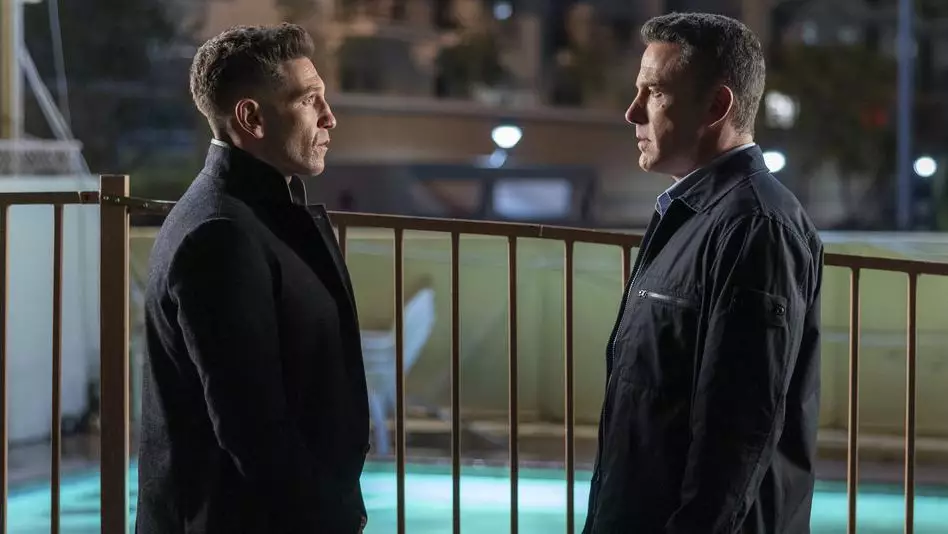In the realm of cinematic sequels, few have managed to escape the daunting shadow cast by their predecessors. However, Gavin O’Connor’s long-awaited follow-up to “The Accountant” brings a refreshing twist to a familiar tale. Nearly a decade after the introduction of Christian Wolff, portrayed by Ben Affleck, audiences are once again invited into the complex world of a savant accountant with a penchant for violence and a deeply troubled past. For those who initially found the original film lacking, this sequel presents an opportunity to reevaluate the narrative, diving deeper into the intricacies of character relationships and personal growth.
The sequel opens with the shocking death of Raymond King (J.K. Simmons), Christian’s former federal contact, who heralds Christian back from his self-imposed exile. This prologue not only re-establishes the stakes but also effectively propels Christian into the center of a new investigation led by Marybeth Medina (Cynthia Addai-Robinson). This character is a notable addition to the narrative, and her quest for justice unfolds parallel to Christian’s personal journey, weaving a tapestry that is both thrilling and emotionally resonant.
Complex Characters and Compelling Chemistry
One of the standout elements of “The Accountant 2” is its exploration of familial ties, particularly the dynamics between Christian and his estranged brother Braxton (Jon Bernthal). The chemistry between Affleck and Bernthal elevates the storytelling, as it delves into brotherhood with a blend of witty banter and profound tension. This layer was somewhat underexplored in the original film; here, their relationship takes center stage as they confront their past while pursuing justice for a trafficked immigrant mother and her son.
The absence of Anna Kendrick’s character, Dana Cummings, might be felt by some, yet it paves the way for other characters to flourish. Daniella Pineda’s portrayal of a new assassin introduces an intriguing parallel to Christian’s own savant syndrome, reinforcing the idea that extraordinary abilities often come with turbulent histories. Pineda delivers a performance filled with gravitas, presenting a character whose struggles add depth rather than merely serving as a plot device.
A Narrative Rich in Themes
Themes of redemption, familial conflict, and the weight of past decisions permeate “The Accountant 2.” The exploration of absent parental figures might raise eyebrows, yet it serves as a backdrop to the emotional journeys of the characters involved. The narrative question of identity and forgiveness runs deep, particularly as Christian attempts to navigate his connection with Braxton while simultaneously making amends for their family’s tumultuous history.
The emotional resonance is palpable as characters face their demons, often tied to their shared pasts, all while pursuing a common moral good. The evolution of each character is subtly presented, illustrating that while not all story arcs conclude with neatly tied bows, every individual finds a sense of resolution, whether that comes in the form of vengeance or personal understanding.
The Balance of Action and Emotion
“The Accountant 2” manages to balance the fast-paced excitement of action sequences with moments of introspection and emotional depth. While gunfights and high-stakes scenarios unfold, they never overshadow the core of the story—the human connection. This balance is not only refreshing but serves as a reminder that even amidst chaos, the quest for understanding oneself and those around us remains paramount.
As the film approaches its climax, the dual narratives of retribution and familial reconciliation coalesce, leading to a satisfying convergence. It’s an invigorating mix that encourages viewers to reflect on their own relationships and the shadows of their past, all wrapped in a thrilling package that keeps them on the edge of their seats.
In re-examining the sequel to a film that struggled to find its legs, “The Accountant 2” emerges as an engaging exploration of complexity and depth, reminding us that sometimes, revisiting the past can yield surprising rewards. As the story unfolds, we see not just a continuation of Christian Wolff’s journey, but an invitation to appreciate the nuance of human relationships, even in the darkest of circumstances.

